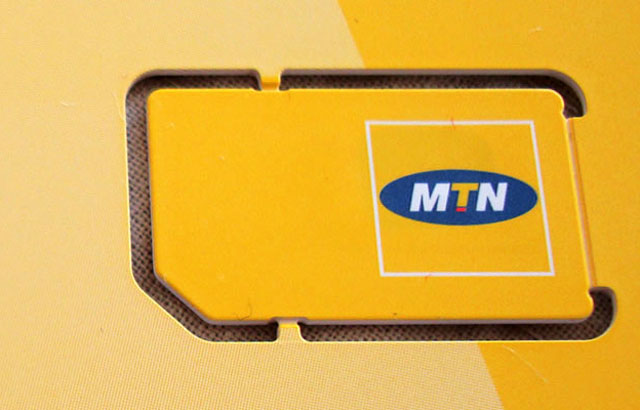
Last week, Republicans seized on news that David Plouffe, a senior advisor in the White House, had accepted US$100 000 from a subsidiary of MTN for two speeches he gave in Nigeria shortly before joining the White House staff in 2010.
“Today’s story raises serious questions about [US President] Barack Obama’s senior adviser travelling to Nigeria weeks before he joined the West Wing to give a speech with a company actively engaged with and profiting from the oppressive policies of the Iranian regime,” Republican spokesman Kirsten Kukowski said. She added this raised “serious questions”.
“David Plouffe may be the biggest loophole in the international community’s sanctions against Iran,” she said.
MTN has been accused of helping the Iranian government spy on subscribers, and of being complicit in brutal crackdowns on protestors in recent years. Earlier this year, sources close to MTN’s Iranian business told the M&G that the company gave Iran’s military intelligence officials open access to subscribers’ details. The company has denied the claims.
The telecommunications giant is facing a lawsuit from the Turkish mobile phone operator Turkcell in a US federal court. Turkcell has accused MTN of winning the contested telecoms contract in Iran through bribery and the promise of weaponry, influence and UN votes by way of the SA government. Turkcell is suing MTN for $4,2bn. MTN however has denied these claims.
The US administration has tightened sanctions against Iran in recent months, calling for the country to abandon its nuclear enrichment programme and pressure for MTN to cut ties with Iran has mounted since Obama issued an executive order calling for divestment in the country earlier this year.
But the White House has said it would be unfair to criticise Plouffe over the incident because MTN’s role in Iran was not an issue when he was invited to make the speeches. White House spokesperson Eric Schultz said that criticism of Plouffe now for controversies that developed years later was “simply misplaced”.
The Washington Post noted that while there were no legal or ethical restrictions preventing Plouffe, at the time a private citizen, from accepting money to speak to an MTN subsidiary, it could “prove troublesome” for Obama at a time when the White House was toughening its stance toward Iran.
Plouffe’s ethics have been questioned and news reports have highlighted the fact that he earlier accepted $50 000 from the authoritarian government of Azerbaijan for another speaking engagement.
But as the issue gained momentum, Plouffe’s supporters pointed out that the Republican presidential candidate Mitt Romney is an investor in Turkcell. The New York Times has pointed out that Romney could stand to benefit if Turkcell wins its case.
Former US diplomat and Daily Maverick associate editor J Brooks Spector said the matter is being used for political point-scoring.
“The issue is clearly being used to put the Obama administration on its back foot for domestic political reasons,” he said. “It ties into the narrative the Romney campaign has been swinging, that the Obama administration has been soft on Iranian interests and [Iran’s] ability to establish a nuclear weapons programme,” he said.
Much more serious implications
There are just a few months before the US heads to the polls to decide between a second term for Obama or a Romney presidency. Americans may be kicking up a storm about Plouffe’s tenuous link to MTN but in SA, where the allegations could have much more serious implications, there has barely been a ripple.
The M&G earlier reported that top MTN executives including Phuthuma Nhleko, Irene Charnley and Sifiso Dabengwa were kept abreast of MTN’s allegedly dubious strategies to seal the Iranian telecoms deal, and political bigwigs — including then defence minister Mosioua Lekota and former president Thabo Mbeki — were also said to have lent their influence to the deal.
Despite these linkages, SA politicians and business people have largely managed to avoid the negative press associated with the Turkcell case simply by way of denial.
There has been little news on the matter since the Hawks confirmed in June that an investigation into the allegations of corruption was underway.
Locally, the matter has been treated more as a business story than a political one. Ebrahim Fakir, manager of governance institutions and processes at the Electoral Institute for the Sustainability of Democracy in Africa, was unfazed by the entire incident.
“We have to move away from the naive idea that governmental politics is completely outside of business,” he said. Fakir said that governments around the world use their influence to improve companies’ chances of securing business overseas and so increasing their tax base.
This is not a problem unless individuals begin “greasing palms” or “flouting regulations”, he said. Fakir also questioned the timing of the leaks concerning MTN’s business practices in Iran.
Fakir pointed out that the leaks coincided with increased mutterings about the ANC succession race. Cyril Ramaphosa, at one point considered to be a contender for the ANC presidency, is chairman of the MTN board, he said.
The hubbub over the MTN deal has died down in recent months, as has speculation about Ramaphosa’s chances at the ANC’s elective conference in Mangaung in December. — (c) 2012 Mail & Guardian
- Visit the Mail & Guardian Online, the smart news source




